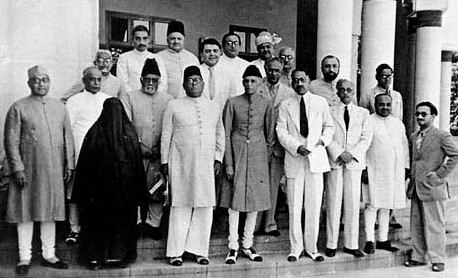Free Courses Sale ends Soon, Get It Now


Free Courses Sale ends Soon, Get It Now



Disclaimer: Copyright infringement not intended.
Context
Details
Lahore Resolution of 1940
Adoption and Significance
Interpretation and Debate
Lead-up to the Lahore Resolution

Observance in New Delhi
|
PRACTICE QUESTION Q. The lead-up to the Lahore Resolution was marked by a complex interplay of political, social, and historical factors, ultimately culminating in the adoption of a resolution that would shape the course of South Asian history. Discuss. (150 words) |
© 2024 iasgyan. All right reserved